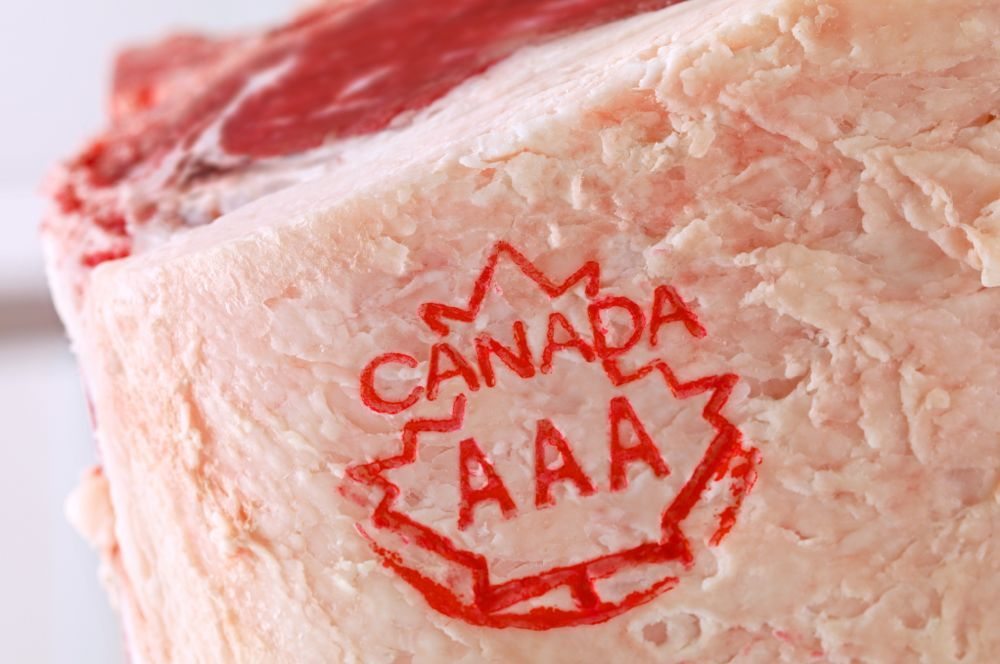U.S. COOL rules formally off beef, pork
By Staff
| 3 min read

(Photo courtesy Canada Beef Inc.)
The U.S. Agricultural Marketing Service (AMS) has formally patched a long-sore spot in cross-border trade relations by pulling its country-of-origin labelling (COOL) regulations off beef and pork.
The AMS, an arm of the U.S. Department of Agriculture (USDA), published its amendments Wednesday in the U.S. Federal Register.
The changes, which took effect upon publication, mean U.S. retailers are no longer required to provide COOL information for beef and pork at the point of sale.
The amendments formalize Congress’ approval in December of an appropriations bill that repealed the COOL requirements in question, after which USDA stopped enforcing those requirements.
The changes follow a years-long challenge of mandatory COOL rules on beef and pork at the World Trade Organization (WTO), which in December granted Canada and Mexico the authority to impose retaliatory tariffs on certain U.S. goods if the COOL rules on beef and pork weren’t removed.
Canada’s Trade Minister Chrystia Freeland and Agriculture Minister Lawrence MacAulay said in a joint statement Wednesday they were reviewing AMS’ amendment, but generally described it as “a tremendously important development for our farmers and the economies of both our countries.”
In a separate statement, the Canadian Cattlemen’s Association (CCA) said it was “satisfied” that the AMS amendment “should eliminate the need to segregate imported cattle in the U.S.”
That said, the CCA warned that Ottawa needs to retain the “retaliatory rights” granted by the WTO, as “insurance against the possibility that the U.S. might at some future time implement a renewed discriminatory program.”
Canada, the association said, “needs to be in a position to quickly impose tariffs on U.S. products” if such a proposal gains traction.
The CCA cited recent remarks by a U.S. senator from North Dakota calling for a voluntary COOL bill that the association believes “will necessitate segregation of imported cattle and hogs.”
The CCA didn’t name the senator, but Sen. Heidi Heitkamp, a North Dakota Democrat and member of the Senate agriculture committee, was recently quoted as saying current debates on U.S. food labelling could open up an opportunity to consider a voluntary COOL scheme.
Mandatory COOL, in place in the U.S. since 2009, was ruled out of order by the WTO’s Dispute Settlement Body (DSB) in 2011 and WTO Appellate Body in 2012 for discriminating against Canadian and Mexican livestock and meat.
Canada’s position on COOL has long been that while shoppers should be able to make informed decisions about the food they buy, the labelling rules in COOL led to substantial additional costs incurred by those in the U.S. meat supply chain, including producers, processors, distributors and retailers.
Said costs are incurred by businesses that COOL requires to segregate imported animals and meat from their U.S. counterparts at each step in the production process, while facilities that handle U.S. animals only wouldn’t incur any such additional costs.
AMS, in a separate release Feb. 29, noted mandatory COOL remains in place for chicken, lamb, goat, farmed and wild-caught fish and shellfish, “perishable agricultural commodities,” peanuts, pecans, macadamia nuts and ginseng. — AGCanada.com Network


